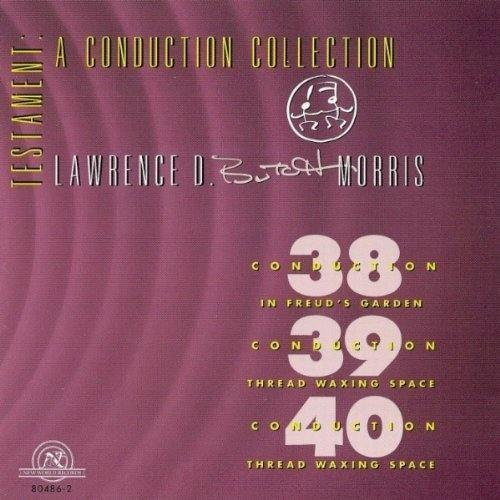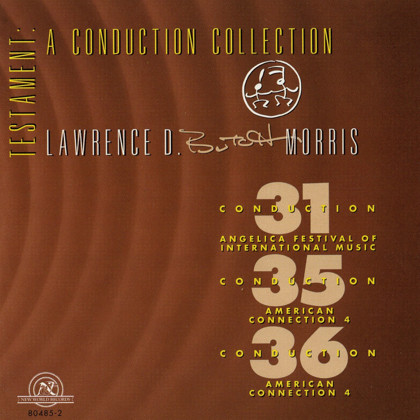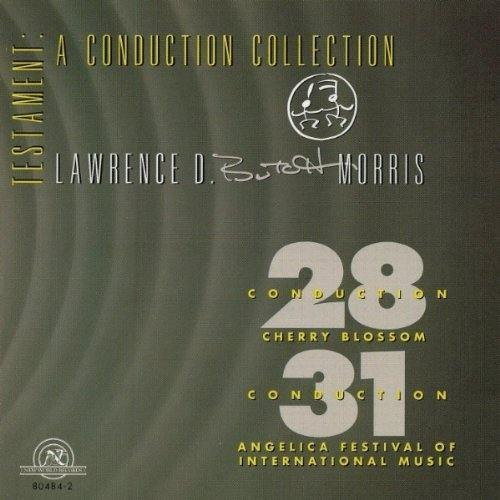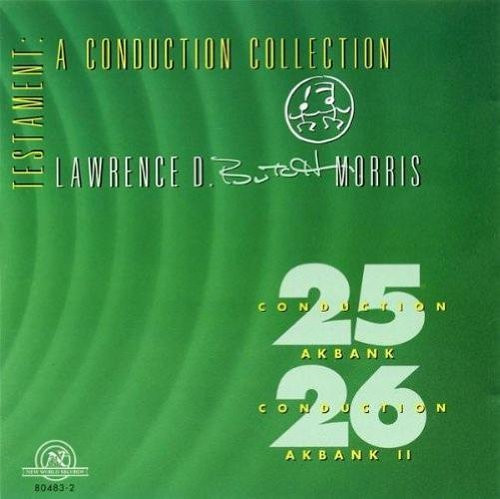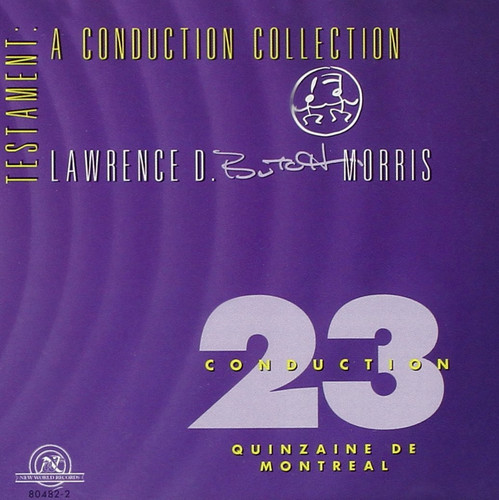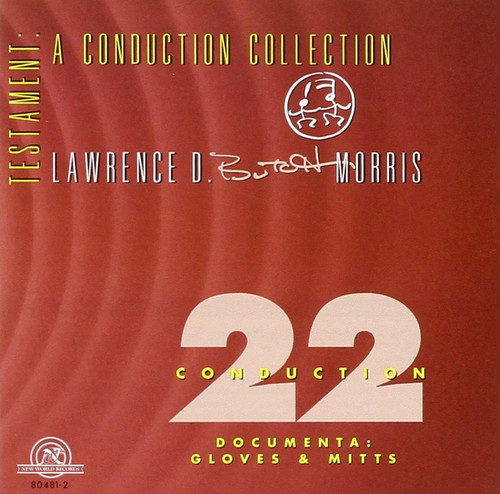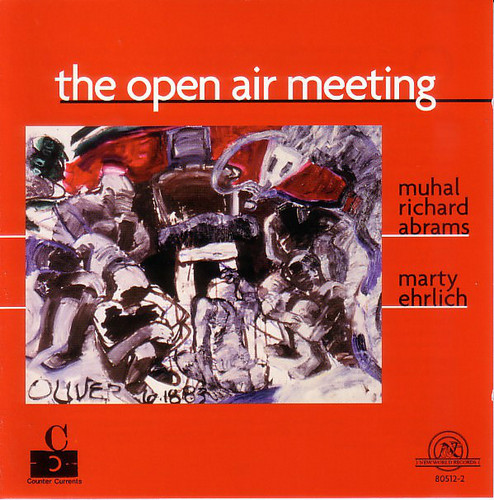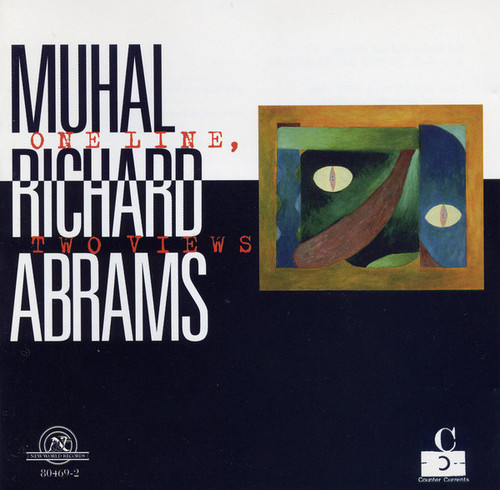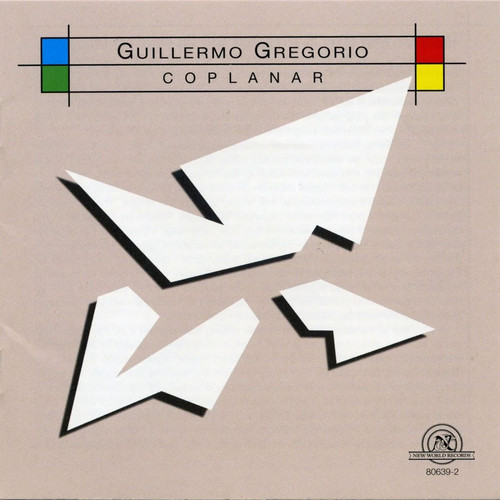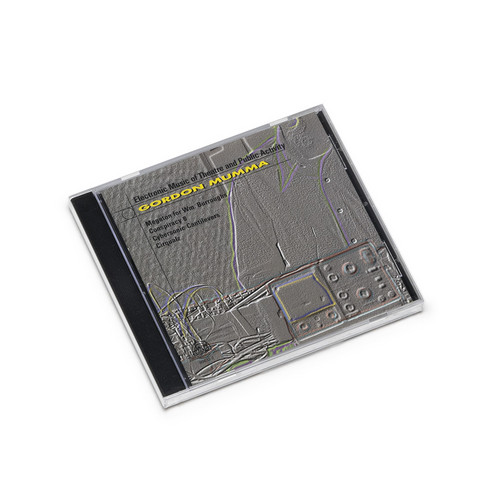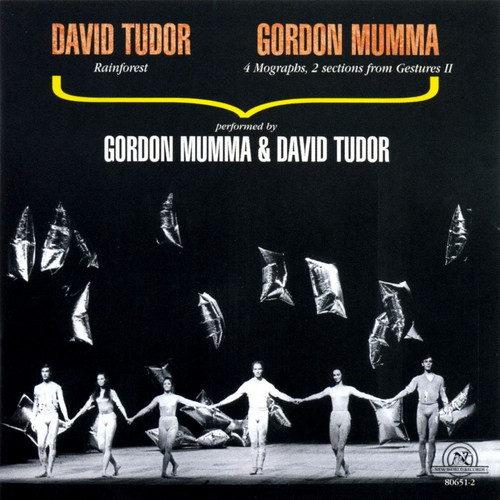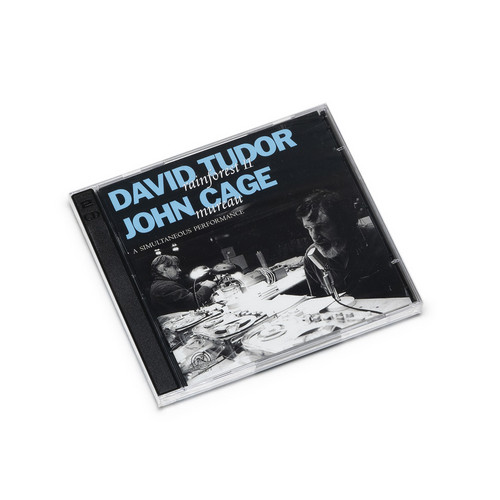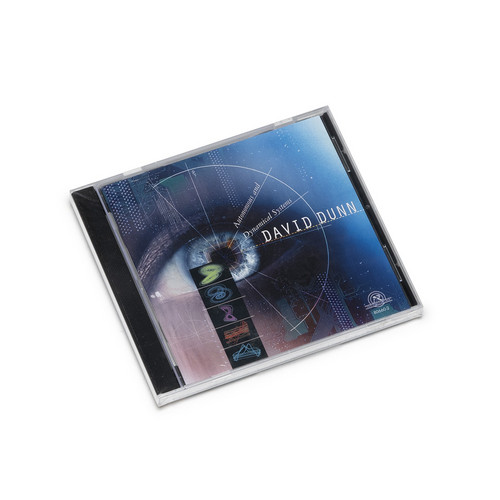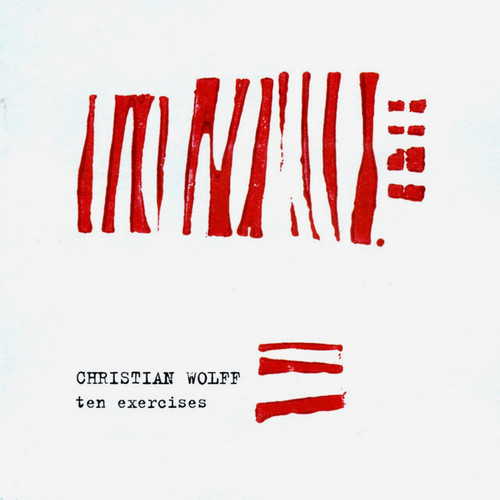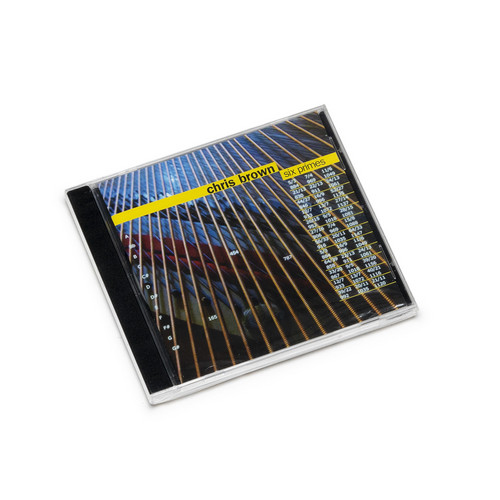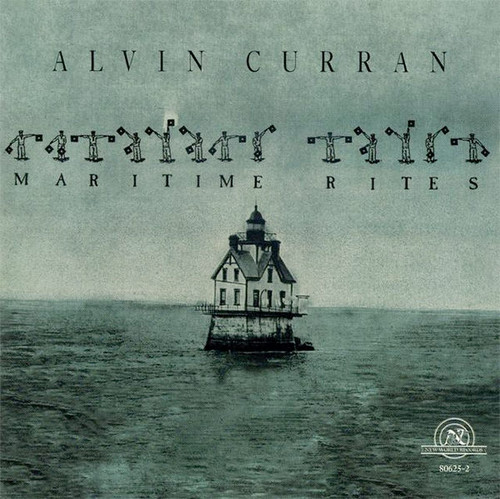★New World Records
Conduction #38: in Freud’s garden, conduction #39 & #40: threadw
1995 release **Conduction #38: in Freud's Garden: Muffathalle, Germany; December 11, 1993Myra Melford, piano; Zeena Parkins, harp; Bryan Carrott, vibes; Brandon Ross, acoustic guitar; J. A. Deane, trombone; live sampling; Motoharu Yoshizawa, electric bass; Lê Quan Ninh, percussion; Martin Schütz, electric cello; Tristan Honsinger, cello; Martine Altenburger, cello; Edgar Laubscher, electric viola; Hans Koch, clarinet, bass & contrabass clarinet, soprano & tenor saxConduction #39 & #40: Threadwax…
Conduction #31: Angelica, conduction #35: American connection 4,
1995 release ** Conduction #31: Angelica Festival of International Music: Bologna, Italy; May 16, 1993
Dietmar Diesner, soprano sax; Peter Kowald, bass; Wolter Wierbos, trombone; Steve Beresford, piano; Hans Reichel, guitar; Tom Cora, cello; Han Bennink, drums; Catherine Jauniaux, voice; Ikue Mori, drum machinesConduction #35: American Connection 4: Antwerp, Belgium; May 26, 1993Conduction #36: American Connection 4: Amsterdam, Holland; May 27, 1993The Maarten Altena Ensemble: Maarten Altena, ba…
Conduction #28: Cherry Blossom, conduction #31: Angelica
1995 release ** Conduction #28: Cherry Blossom: P3 Art and Environment, Tokyo, Japan; March 28, 1993Yukihiro Isso, nokan; Shonosuke Okura, ohtsuzumi; Makiko Sakurai, shomyo, music box; Michihiro Sato, tugaru syamisen; Kizan Daiyoshi, shakuhachi; Yuji Katsui, violin; Haruna Miyake, piano; Asuka Kaneko, voice; Shuichi Chino, computer; Koichi Makigami, voice; Yoshihide Otomo, turntables, CD player; Kazutoki Umezu, bass clarinet; Sachiko Nagata, percussion; Motoharu Yoshizawa, electric bass; Kazuo O…
Conduction #25 & #26: The Akbank conduction, AkbankII
1995 release ** The Akbank Conduction, Akbank IIIstanbul, Turkey; October 16 & 17, 1992The Süleyman Erguner Ensemble: Hasan Esen, kemence; Mehmet Emin Bitmez, ud; Göksel Baktagir, kanun; Süleyman Erguner, ney; Lê Quan Ninh, percussion; Bryan Carrott, vibraphone; J.A.Deane, trombone, electronics, drum machine; Elizabeth Panzer, harp; Brandon Ross, acoustic guitar; Steve Colson, piano; Hugh Ragin, pocket trumpetConducting is no longer a mere method for an interpretation, but an actual part of the …
Conduction #23: Quinzaine de Montréal
1995 release ** Quinzaine de MontrealThe Spectrum, Montreal, Quebec, Canada; April 11, 1992Tristan Honsinger, cello; Martin Schütz, cello; Eric Longsworth, cello; Michelle Kinney, broom-cello; Ken Butler, broom-cello; Helmut Lipsky, violin; J. A. Deane, trombone, live sampling; Guillaume Dostaler, piano; Mike Milligan, bass; Pierre Dubé, vibesConducting is no longer a mere method for an interpretation, but an actual part of the process of composition. Conduction is a means by which a conductor m…
Conduction #22: Documenta: gloves & mitts
1995 release ** Documenta: Gloves & MittsDocumenta 9, Kassel, Germany; June 14, 1992Christian Marclay, turntables; Lê Quan Ninh, percussion; J. A. Deane, trombone, live sampling; Martin Schütz, cellos; Günter Müller, drums, electronics.Conducting is no longer a mere method for an interpretation, but an actual part of the process of composition. Conduction is a means by which a conductor may compose, (re)orchestrate, (re)arrange and sculpt both notated and non-notated music. Using a vocabulary of…
The Open Air Meeting
Muhal Richard Abrams: piano; Marty Ehrlich: alto saxophone, clarinet.
This disc is taken from a live recording of an open air concert
which took place August 11, 1996 at the Brooklyn Museum in New York.
This duet concert was, on one level, a meeting between two of the
seminal jazz innovators of their respective generations. The nuanced and
subtle interchange of ideas between these two great musicians-as they
challenge and provoke each other to explore new musical ground-is
enthralling thr…
One Line Two Views
One Line, Two Views features seven compositions for nine-piece
ensemble by Muhal Richard Abrams. Works range from the subtle textural
and tonal explorations of “Textures,” “Hydepth,” and the title track to
the hard bop revisitations of “11 over 4” and “The Prism 3.” The disc is
rounded out by an ebullient, joyous, and celebratory “Tribute to Julius
Hemphill and Don Pullen” and the blues-tinged “Ensemble Song.” Abrams
opts for unique instrumentation including violin, harp, and accordion.
…
Coplanar
Guillermo Gregorio (b. 1941, Buenos Aires) is an Argentine composer, clarinetist, and saxophonist whose career bridges avant-garde music, visual art, and architecture. Active on the Argentine experimental scene from the 1960s through the early 1980s, he was a key member of groups like Movimiento Música Más (a Fluxus collective), the Experimental Group of Buenos Aires, and the Group of Contemporary Music of La Plata, engaging in Fluxus events, multimedia spectacles, and experimental concerts.
Gre…
Electronic music of theatre and public activity
Gordon Mumma (born 1935) has played a pioneering role in the development and evolution of 'live-electronic' music. 'Live-electronics' as a concept and practice appears to have originated in the United States in the late 1950s, outside the few institutional electronic studios and often in the context of innovative theatre activity. From its inception, it frequently involved two processes: (1) live performance with accompanying or interacting sound materials on magnetic tape; and (2) the use of el…
Rainforest + 4 mograph
This historic recording features the first-ever release of the two earliest surviving recordings of David Tudor's seminal work, Rainforest. Sandwiched in between are six keyboard works by Gordon Mumma in recordings featuring the composer and his close collaborator, Tudor. Together, these works constitute a fascinating and historically important document of the 1960s avant-garde in America. In early 1968, Merce Cunningham created a new dance whose apparent impetus was Colin Turnbull's The Fore…
Rainforest II / Mureau
This historic release of a simultaneous performance by David Tudor and John Cage of Rainforest II and Mureau, recorded live by Radio Bremen on May 5, 1972, preserves the only surviving performance of the second of Tudor’s "Rainforest" series. In addition, it documents one of the precious few recorded collaborations between these two visionaries. In 1970 Cage composed the piece called Mureau, in which phrases from Thoreau’s journals (in particular, passages which touch on the subject of music) ar…
Autonomous and dynamical systems
A relentless explorer, composer, performer and theorist, David Dunn (b 1953) uses electro-acoustic resources, voice, non-human living systems, as well as traditional instruments. A creator of text-sound compositions, environmental installations, works for radio and video, he has also written and published extensively. Underlying all his work is a common regard for music as a communicative source with a living world. Growing up in San Diego in the sixties and seventies, he encountered people lik…
Ten Exercises
This marvelous recording of these elusive works features composer-supervised performances by a hand-picked group of renowned new-music exponents. "Your first encounter with the music of Christian Wolff leaves you with the impression you've just heard (or played, or read) something totally strange, unlike anything else you know. And yet, upon reflection, you realize it is at the same time something completely ordinary and normal, as familiar in its way as any number of repetitive actions …
Six Primes
Six Primes is composed using the first six prime numbers 2, 3, 5,
7, 11, and 13 to govern both its tuning and temporal structure,
including harmony, rhythmic subdivisions, and form. I wrote this music
to explore the limits of using the same integer ratios to simultaneously
provide melodic, harmonic, and rhythmic materials. The piano must be
retuned in just intonation using the tuning system factor of 2, three
ratios with highest prime of 3, and two ratios each with highest primes
of 5, 7,…
Maritime Rites
Featuring the foghorns and other maritime sounds of the U.S. Eastern Seaboard and solo improvisations by John Cage, Joseph Celli, Clark Coolidge, Alvin Curran, Jon Gibson, Malcolm Goldstein, Steve Lacy, George Lewis, Pauline Oliveros, and Leo Smith "In the middle 1970s I began to formulate ideas and projects leading to the making of music outside the concert halls-often in large open and naturally beautiful sites. Ports, rivers, lakes, caves, quarries, fields, and woods, always ready sources of …
